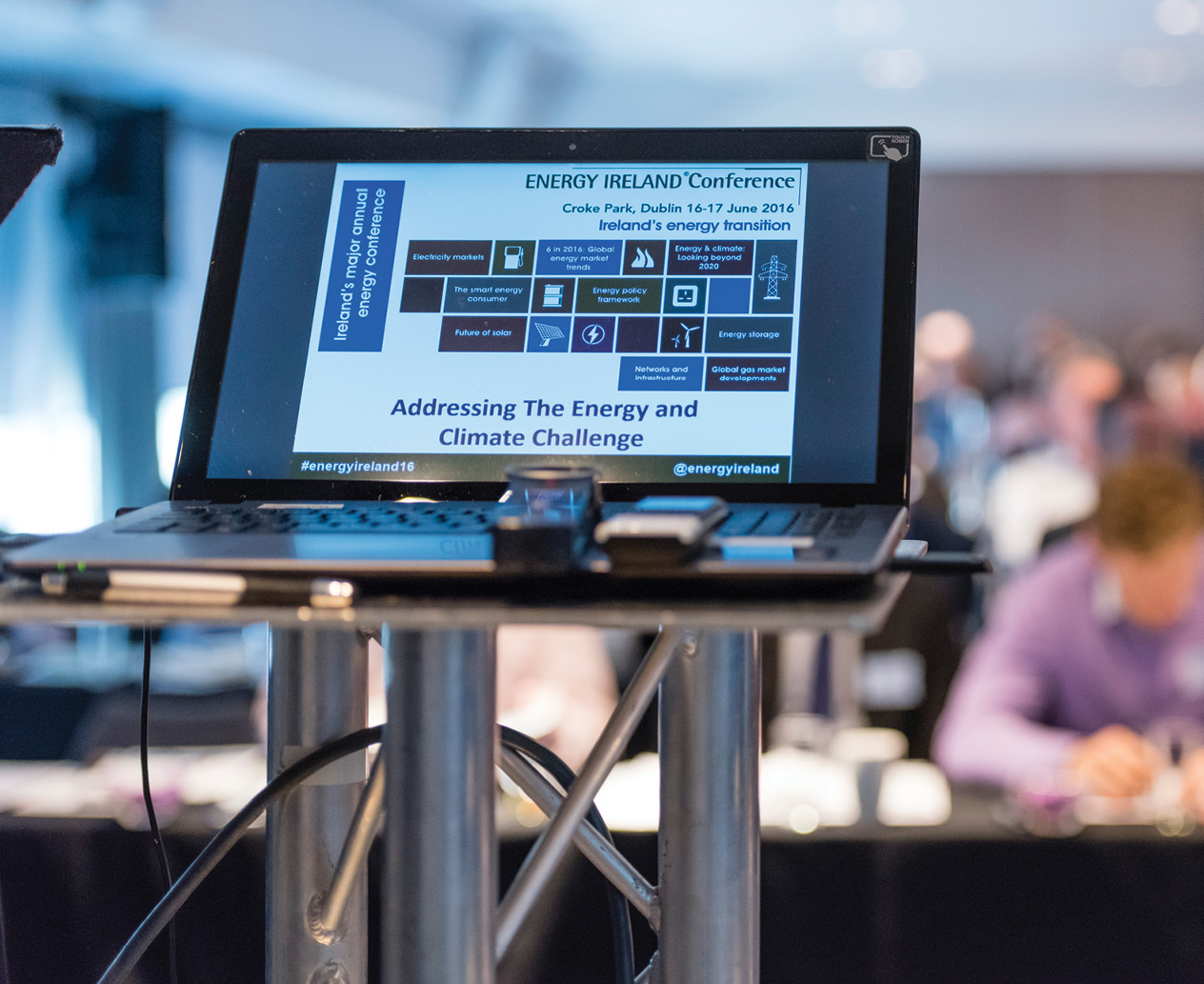
Energy Ireland: the great debate
9th November 2016
EU Energy Targets and a Renewable Heat Incentive
9th November 2016Investing in renewables


The COP 21 Paris agreement will bring about a step change in climate change and energy related-investment programmes according to European Investment Bank (EIB) Economist David Kerins. He made the comment while speaking at the Energy Ireland 2016 conference.
“Up to 2035 an investment fund of around €45 trillion will be required to ensure that the COP 21 targets are met,” said Kerins. “This will be distributed down on a 3:1 basis between supply and energy efficiency projects. Renewables will account for three quarters of the envisaged investment requirement.”
Kerins explained that approximately €1 trillion of investment will be required to allow the EU to reach its 2020 climate change commitments.
“The figure rises to €20 trillion, where Europe’s 2030 targets are concerned,” he added.
“This will include a significant investment in the electricity systems currently in place across all of Eastern Europe.”
Kerins envisages the development of a joint public or private sector investment model. “However the conditions must be right to encourage the participation of the private sector. This will require an accurate quantification of the risks involved,” he said.
“Potential investors must have a firm knowledge of the projects they are being asked to support. However, the future fundamentals associated with investments in the EU’s energy sector remain positive.”
Kerins commented that governments are getting smarter when it comes to designing schemes that are investor friendly. These must include the potential for adequate competition to be brought to bear within the market place.
He continued: “Inflexible schemes just don’t work. However, a mismatch between the support that may be available and underlying technology costs can cause problems.” Kerins then went on to point out that renewable heat and transport-related projects are difficult to finance, citing the volatility that exists within these sectors as key stumbling blocks.
“It’s a difficult credit risk scenario for investors. However, this may change with the advent of second and third generation biofuels. A further difficulty with renewable heat projects is the fact that they usually very small in nature and, as a consequence, extremely complicated to finance.”
Kerins said part of the role which EIB can play, where renewables are concerned, is to take more risk within the sector. “This is part of the Juncker plan,” he stressed.
According to Kerins, energy efficiency projects are often fragmented and relatively small-scale. As a result, they generate high transaction costs for lenders, a relatively high risk-perception from financiers and unclear underlying business cases for the corporate world. These factors explain the current under-investment in energy efficiency projects. He added that the European Fund for Strategic Investment (EFSI) aims to make a difference to the availability of long-term financing for energy efficiency projects. In other words, it will help de-risk energy efficiency operations, up-scale existing financial instruments and create specific investment tools that enable a pooling of capital resources and bundling of investment projects into larger portfolios.
“Governments need to achieve maximum value for money from publicly supported programmes,” he said.
“This will include exposing renewables to the market and rewarding conventional flexibility. Tying in with these objectives, we also need to see the adaption of electricity grids and the supporting of renewable energy in emerging markets.”
Kerins continued: “These investment challenges can be overcome and EIB plans to be a willing partner in this process. We are already committed to a number of demonstration projects which confirm that scaling up can be achieved within the renewables’ sector.
“The investment solutions required, moving forward, will come in the form of tailored financing packages that met the requirements of all the stakeholders involved. But governments must ensure that they have the right policies formulated in order to kick start the investment process that will follow.”
